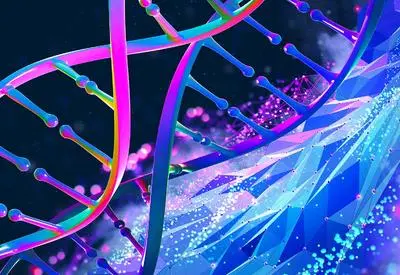We are told to be wary of looking at the natural world through a human lens. From projecting human intentions onto animals or using language that suggests natural processes have purpose, scientists are taught to avoid “anthropomorphising”. Yet, this kind of thinking can have significant explanatory power – think of Richard Dawkins’ famous “selfish genes”. In this article, Arvid Ågren mounts a defence of the gene's eye view of evolution and argues that if we are rigorous with our anthropomorphic thinking, we can see nature in a new light.
One of the first things you are taught as a biology student is to not anthropomorphize. To assign human emotions and intentions to plants and animals is something kids do, not proper scientists. Yet, we biologists anthropomorphize all the time.
Many of my colleagues consider this habit a bit of an embarrassment. Take, for example, the plant scientist David Hanke who lamented that
 SUGGESTED READING
The gene illusion
By Denis Noble
“Biology is sick. Fundamentally unscientific modes of thought are increasingly accepted, and dominate the way the subject is explained to the next generation. The heart of the problem is that we persist in making (literally) sense of a world that we now know to be senseless by attributing subjective values to the objectives in it, values that have no basis in reality.”
SUGGESTED READING
The gene illusion
By Denis Noble
“Biology is sick. Fundamentally unscientific modes of thought are increasingly accepted, and dominate the way the subject is explained to the next generation. The heart of the problem is that we persist in making (literally) sense of a world that we now know to be senseless by attributing subjective values to the objectives in it, values that have no basis in reality.”
To Hanke and several other biologists, anthropomorphising leads to sloppy thinking, and it makes biology appear like a childish, rather than an exact, science. Look at chemistry and physics, they say, there the grown-ups have no time for embarrassing notions like purpose or intentionality. Serious scientific explanations are mechanical.
___
“Anthropomorphic thinking is most useful when thinking about entities totally different to us”
___
This tension arises because biology straddles what the biologist-cum-philosopher Massimo Pigliucci called the ‘teleonomic divide’. Teleonomy, as opposed to teleology, is the appearance of purpose. Biologists do not literally believe purpose actually exists or that living organisms are made of any mystical substance absent in non-living things. They are good materialists – no ghost in the machine here.
But biology clearly is different from physics and chemistry. The short and obvious answer to why it is different is that biologists study life. Living organisms are, of course, just like any physical object. They are built with the same protons and electrons as non-living things and are subject to the same laws of nature. Still, organisms also possess something that makes a racoon different from a rock. Racoons and other animals seem to have a sort of goal-directedness that the rock does not.
Unlike physicists and chemists (but just like economists and historians), biologists occasionally express their explanations in terms of purpose, goals, and strategies. We justify this by pointing to the unique achievement of Charles Darwin. With the theory of evolution by natural selection, he showed how a strictly mechanistic process of inheritance and reproduction can result in the appearance of design in nature: whether the polar bear’s fur that makes it blend into its surroundings or the flowers of the orchid that mimic female bees to attract males to pollinate them. Explaining the fact that organisms often appear almost perfectly suited for their environment – what we call adaptations – is a crowning achievement of Darwin’s theory and why it provides an explanatory bridge between mechanism and purpose.





















Join the conversation